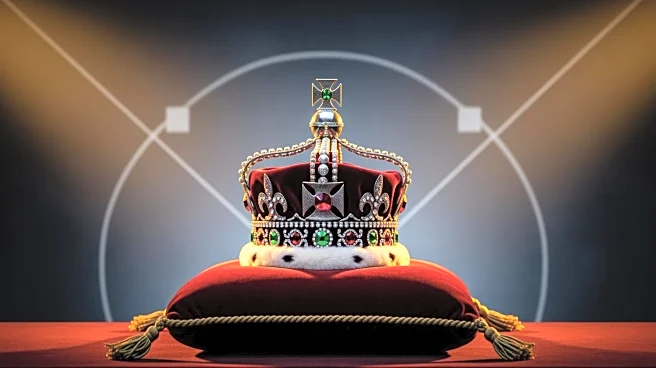What's Happening?
Prince Harry has publicly apologized for wearing a Los Angeles Dodgers hat during Game 4 of the World Series between the Dodgers and the Toronto Blue Jays. The Duke of Sussex, who attended the game with
his wife Meghan Markle, explained that he wore the hat under duress, as he was invited to the Dodgers' box by the team's owner, Mark Walter. Harry expressed regret to Canada, acknowledging his connection to the country's monarchy and pledging to wear a Blue Jays hat in the future. The incident, dubbed 'hat-gate,' drew attention due to Harry's ties to Canada, where he and Meghan spent significant time during the early days of their relationship.
Why It's Important?
The apology highlights the sensitivity surrounding public figures and their affiliations, especially when linked to national symbols or teams. Prince Harry's gesture underscores the importance of diplomatic considerations in public appearances, particularly for individuals with international ties. The incident also reflects the broader cultural impact of sports and the significance of team loyalty, which can resonate deeply with fans and communities. Harry's commitment to wearing a Blue Jays hat moving forward may help mend relations with Canadian fans who felt slighted by his initial choice.
What's Next?
Prince Harry's promise to wear a Blue Jays hat in future events may be seen as an effort to strengthen his connection with Canadian fans. As Harry and Meghan continue to navigate their roles outside the royal family, their public appearances and statements will likely be scrutinized for diplomatic implications. The couple's ongoing involvement in charitable and public events in Canada could further influence their relationship with the country. Additionally, Harry's recent solo trip to Canada for Remembrance Day events suggests continued engagement with Canadian cultural and historical commemorations.
Beyond the Headlines
The incident raises questions about the role of public figures in sports diplomacy and the potential for minor actions to have broader cultural implications. It also highlights the challenges faced by individuals with international ties in balancing personal choices with public expectations. The 'hat-gate' controversy may serve as a reminder of the complexities involved in maintaining diplomatic relations through seemingly trivial actions, such as the choice of attire at public events.









